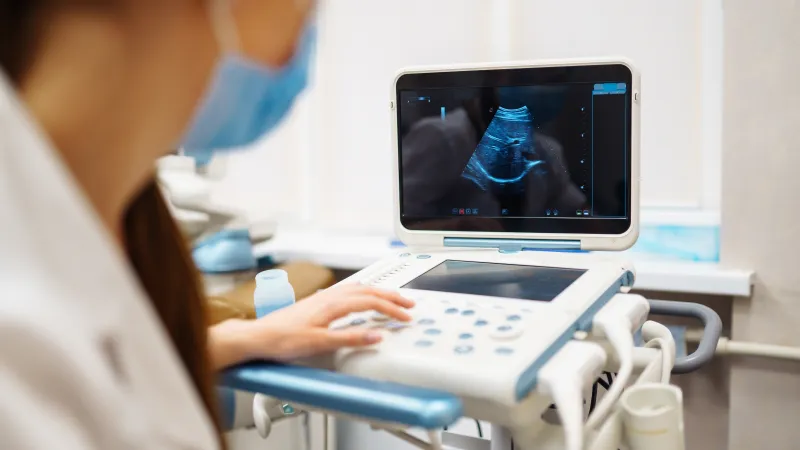Dunwoody Urology
Our Dunwoody Services

Women’s Urological Health Conditions
At Advanced Urology, we specialize in both male and female urological disorders. We treat several urological conditions for women including:
- Pelvic organ prolapse - Pelvic organ prolapse (POP) occurs when one or more of the organs in the pelvis slip down from their normal position and protrude into the vagina. It can be the womb, bowel, bladder or the top of the vagina. Usually, symptoms improve with pelvic floor exercises and lifestyle changes. Sometimes surgical methods like uterine or posterior prolapse surgery can resolve the condition.
- Bladder and urinary issues - It's likely that at some point in every woman's life, she'll experience a urinary tract infection. Everyday bacteria that normally exist in the bowels can move to the urethra. The bacteria spread infection, leading to pain, burning sensations during urination and flu-like symptoms.
At Advanced Urology, we understand how a chronic condition or new diagnosis can place unneeded stress on you. We appreciate your circumstances and endeavor to put your mind at ease while treating you with respect and care you deserve. If you have any of the above symptoms, it’s essential to contact a urologist immediately.

Men’s Urological
Health Conditions
Most men will need to visit a urology specialist within their lifetime. The intricate structure of male anatomy can develop specific health concerns including:
- Low Testosterone (Hypogonadism) - Low testosterone is where the testes produce restrictive levels of androgen hormones. Hypogonadism is more common in obese men and those who have type 2 diabetes. A urologist may order a blood test to measure your testosterone levels. If the results suggest you have an androgen deficiency, you may be offered testosterone replacement. Symptoms include chronic tiredness, reduced sexual appetites, and lethargy.
- Prostate cancer - Any diagnosis of cancer is best detected in its early stages, especially prostate cancer, as it has the third highest mortality rate in oncology. The men most at risk are African Americans, males with specific gene mutations, and individuals who consume a lot of red meat, and aging men.
- Erectile dysfunction - ED is a prevalent condition which affects the majority of men at some point throughout their lives. Erectile dysfunction is easily treated and resolved quickly without any significant medical procedures.
- Bladder cancer - Bladder cancer can affect both sexes, but men are more likely to develop it.
- Testicular cancer - Testicular cancer is an extremely treatable condition. While one in 250 men get the disease, only one in 5000 dies from testicular cancer. Men who experience infertility are more likely to contract testicular cancer. So it's essential to have regular exams and live an active and healthy lifestyle.
- Kidney disease and cancer - Kidney cancer also called renal cancer, is one of the ten most common cancers in the United States of America. Men are twice as likely to contract kidney cancer in comparison to women. The usual urological treatment for kidney cancer is surgery, typically involving a partial or radial nephrectomy.
Make An
Appointment Today
Common Urological Conditions
Both sexes experience conditions related to the urinary tract, bladder, kidneys and reproductive organs including:
- Painful bladder syndrome or PBS - Many think of PBS and interstitial cystitis as the same thing, although PBS is a broader term. The characteristics of both conditions involve pelvic pain (felt below your navel); sudden, intense and more frequent urges to urinate and waking up several times during the night to go to the toilet.
- Overactive bladder - This disorder occurs when a person regularly gets an unexpected and compelling need to pass urine. This sensation is awkward to put off, and this can happen at any time, often without any warning.
- Incontinence - The condition involves the unintentional passing of urine or feces. It's a common problem which affects millions of people. Incontinence is often a symptom of a more severe
- Urinary tract infection or UTI - UTIs are prevalent in adults of all ages and can affect different parts of your urinary tract, including your bladder, urethra or kidneys. Women are more likely to contract a urinary tract infection as the female urethra is considerably shorter than a man's urethra. UTI can usually be treated with antibiotics.
- Urethral stricture - This happens when the urethra is too restricted to allow for the adequate passage of urine.
- Kidney stones - Small, needle-like crystals formed from the build-up of uric acid, struvite, or calcium oxalate in the renal system are excreted via urine flow. Small kidney stones may go unnoticed, passing out painlessly in the urine. But it's common for a kidney stone to block part of the urinary system causing significant pain in the abdomen or groin and sometimes causing a UTI.